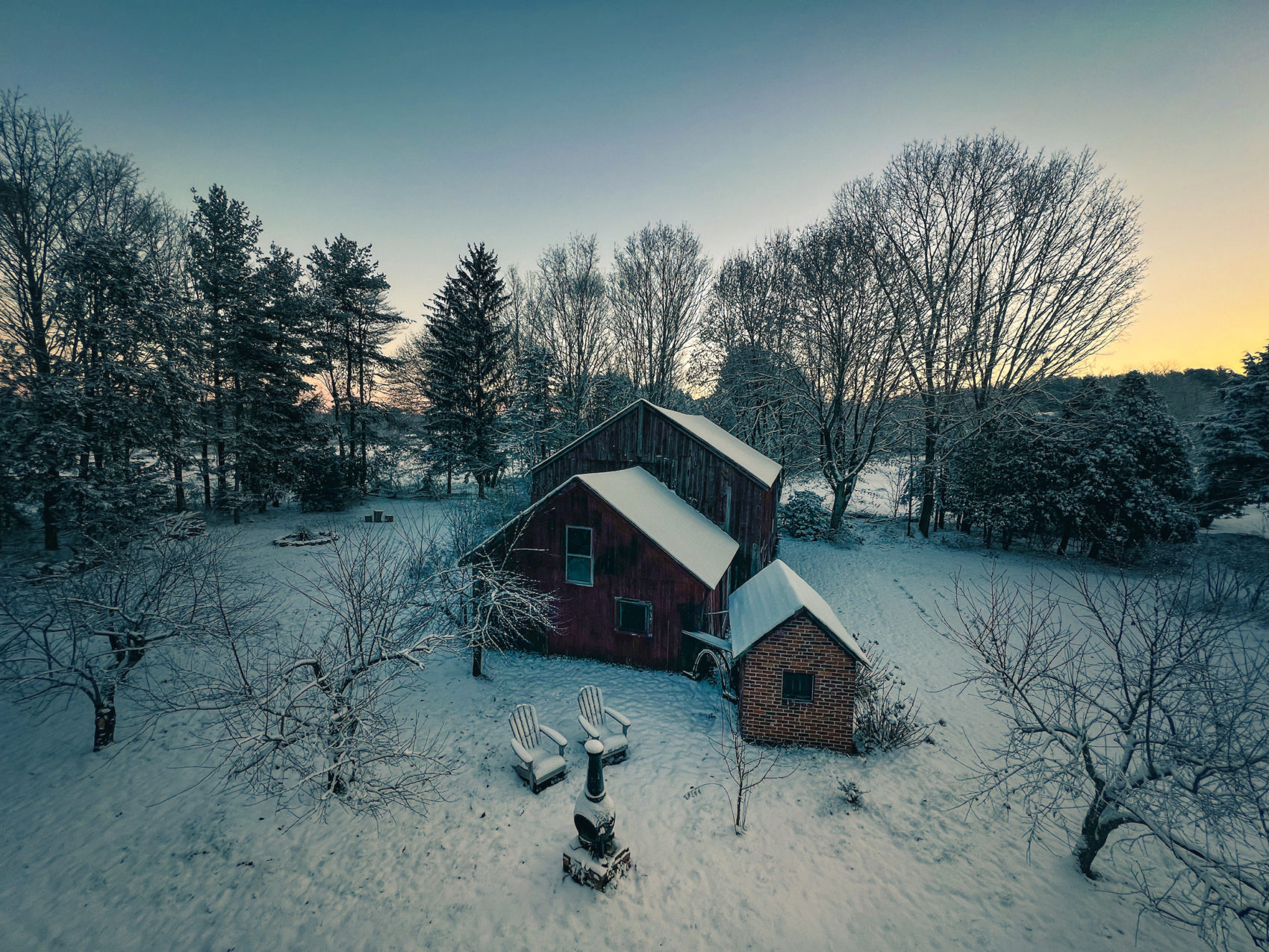Over the twenty-eight years that I’ve been a naturalized New Englander, I’ve developed a personal tradition: every year, I must artisanally hand-shovel the season’s first snowfall. In fact, I try to avoid using a gasoline-powered snowblower for as long as I can. This ceases to be practical after the second or third foot of snow has fallen in as many weeks (which eventually does happen).
This year the first real snowfall came pretty late—December 28th. (I’m not counting the flurries that flew in early October.) We didn’t receive a deep accumulation—it was only three or four inches. But what did fall was wet, heavy as bricks, and covered with a brittle crust of ice, leading me to question the wisdom of shoveling the whole driveway by hand. But I forged ahead and did my work, and in the process reminded myself of why I had concocted my silly tradition in the first place.
It had something to do with being rugged and stoic in the face of daunting odds and harsh conditions, which I’ve romanticized as a New England trait. It also puts me in touch with an earlier, more thoughtful, less mechanized way of doing things. We live in such a privileged, materialistic society that makes it so easy to step on a pedal and end up miles from where we were half an hour ago. In this light, I think it is important to maintain a perspective that honors the laws of physics, and the idea that what goes up must come down. Whatever seems easy (like pushing a button and starting an orange robot that gobbles up snow) must be paid for somewhere else in the universe, probably by some innocent butterfly whose only crime was flapping its wings.
So I return to my shoveling, thinking these deep thoughts, fancying myself some kind of modern-day Thoreau, “wishing to speak a word for Nature.” But I burst my own bubble when I catch myself grumbling about how hard it is to live in a place that experiences extreme winters. (I’m sure that my friends in Wisconsin, Minnesota, and Manitoba will chuckle at this characterization of Massachusetts.) There’s always a five-to-ten-foot strip where the driveway meets the road, where big plow trucks throw salty slush, adding the snow from the road to the snow already on your driveway, gluing everything together into a giant block of ice, and turning your evening into a major excavation project.
But the complaining reflex doesn’t last for long, and I snap back to the perspective of how fortunate and grateful I am. After so many years of struggling and wanting, I finally have a driveway TO shovel. And I think about people in Missouri and Louisiana whose homes are being flooded, and worry about them. I think about people who are being held captive, even if it’s a prison of their own making—a mental scaffolding of religious fanaticism, political fervor, or lust for attention. And my heart goes out to them, and hopes that one day they will find peace within themselves. I think of the people who face health challenges, and all the associated pain. My heart goes out to everyone in the world who is suffering. It makes my little mountain of ice seem so inconsequential.
And so I return to my shoveling.
